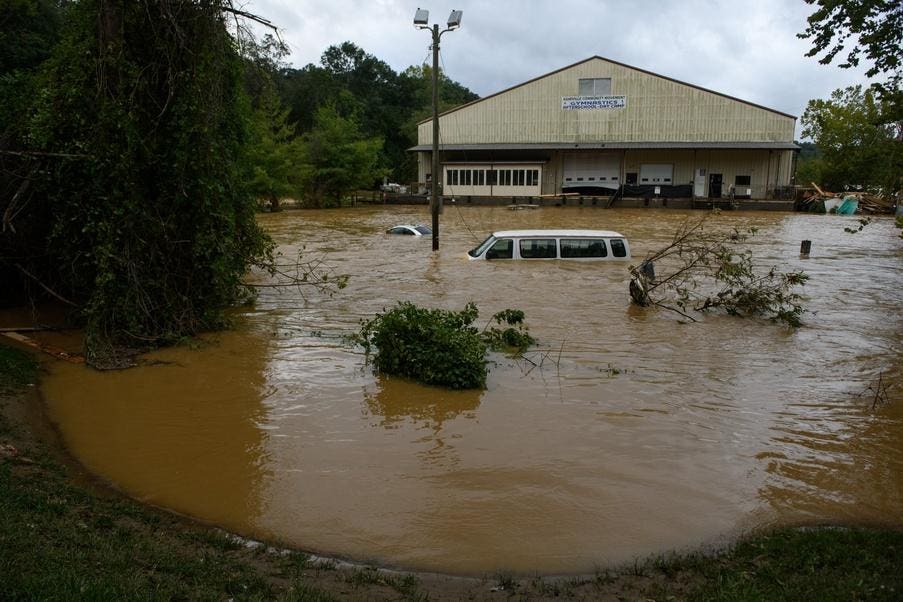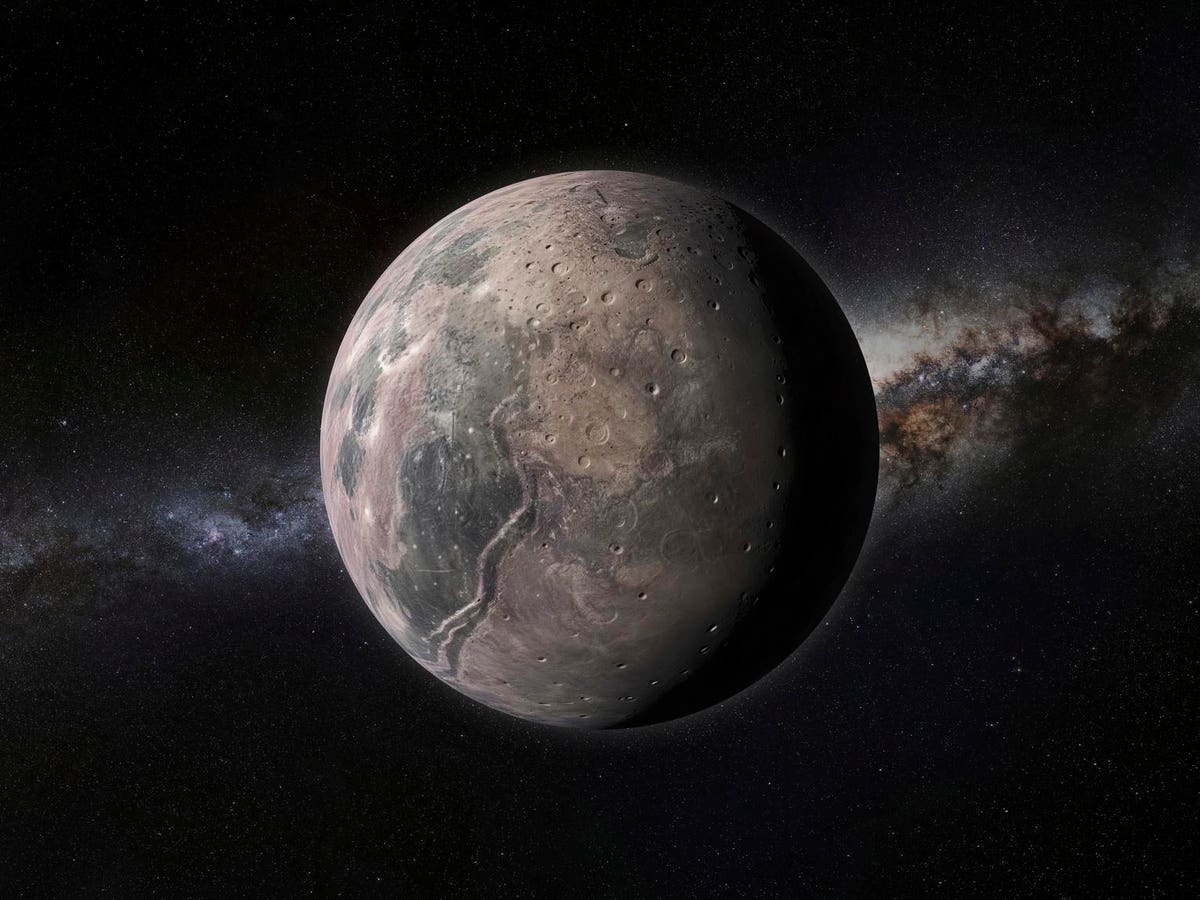ASHEVILLE, NORTH CAROLINA – SEPTEMBER 28: Heavy rains from Hurricane Helene caused record flooding and damage on September 28, 2024 in Asheville, North Carolina. Hurricane Helene made landfall in Florida’s Big Bend on Thursday night with winds up to 140 mph and storm surges that killed at least 42 people in several states. (Photo by Melissa Sue Gerrits/Getty Images)
Getty Images
When we go to the doctor, data is collected to understand our medical history and current vital signs. That data is also used by doctors to identify medical conditions and assess future actions. Climate data is just as vital for scientists, policymakers, and stakeholders diagnosing the health of Earth and determining required actions. Climate.us is a new organization that seeks to be a clearinghouse for important climate data, tools, history and information that used to be available at climate.gov. Their emergence further signals an expanding role for the nonprofit community in science preservation and integrity.
Changes in U.S. policy have led to a different approach related to climate science. A visit to climate.gov brings the message, “In compliance with Executive Order 14303 (“Restoring Gold Standard Science”), the White House Office of Science and Technology Policy’s June 23, 2025 Memorandum (“Agency Guidance for Implementing Gold Standard Science in the Conduct & Management of Scientific Activities”), 15 USC § 2904 (“National Climate Program”), 15 USC § 2934 (“National Global Change Research Plan”), and 33 USC § 893a (“NOAA Ocean and Atmospheric Science Education Programs”), you have been redirected to NOAA.gov.” The message went on to say, “Future research products previously housed under Climate.gov will be available at NOAA.gov/climate and its affiliate websites.”
United States Billion-Dollar Disasters from 1980 to 2024.
NOAA
Scientists have also reported that the National Climate Assessment report is no longer available at certain government websites. The National Centers for Environmental Information housed the Billion Dollar Weather and Climate Disasters product. The site now hosts a message that said, “In alignment with evolving priorities, statutory mandates, and staffing changes, NOAA’s National Centers for Environmental Information (NCEI) will no longer be updating the Billion Dollar Weather and Climate Disasters product.”
That’s where climate.us comes in. Buzz about the website started appearing on various social media platforms last week. While there is not much there right now, their Instagram profile described them as, “A nonprofit successor to Climate.gov. Safeguarding public access to trusted. climate data, tools, and information.” They also include a link for crowdsourcing donations. According to CNN, initial support came from nonprofit organization Multiplier, which has helped other groups rescuing data. Climate.us has a presence on all major social media outlets as well.
Omar, a person experiencing homelessness, splashes his face with water from a bucket filled by an open fire hydrant as southern California faces a heatwave, in the Skid Row neighborhood of Los Angeles, California on September 4 2024. Californians were being warned on September 3 to prepare to swelter as a fearsome heatwave settles over the western US state. The mercury was forecast to top out at a scorching 113F (45C) in parts of Los Angeles later in the week, marking the high point of an already hot summer. (Photo by ETIENNE LAURENT / AFP) (Photo by ETIENNE LAURENT/AFP via Getty Images)
AFP via Getty Images
Rebecca Lindsey is a science writer and a former program manager at climate.gov, which was an amazing website for credible climate science information, data, and tools. Lindsey and other colleagues were laid off earlier this summer, according to NPR. Lindsey told CNN that climate.us is not simply a data preservation site, but it will certainly serve that function. However, it will also be a source for things climate.gov users were familiar with like data interpretation, interactive tools, graphics, images, and more.
The climate is changing, and we are seeing clear examples of impacts on weather, sea level rise, national security, energy, water, economic competitiveness, public health, and more. Whether you acknowledge it or not, we do not have a “Planet B” or viable alternative planet for the foreseeable future.
We currently face a firehouse of social media disinformation and grey literature information that appears credible. The public may not know how to filter and decipher good climate science information. That makes the efforts of climate.us a great service to our nation, the world, and humanity.
Astronauts saw the Earth rise over the lunar horizon after Apollo 8 came through the lunar orbit insertion burn. December 29, 1968. | Location: Earth and Earth’s Moon. (Photo by © CORBIS/Corbis via Getty Images)
Corbis via Getty Images









